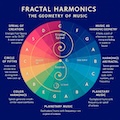Originally published: https://realpompano.substack.com/p/kodak-black-keys-to-city
----
On July 8, Mayor Rex Hardin awarded Pompano Beach native and Grammy Award-winning Rapper Kodak Black (28) keys to the City of Pompano Beach for his “outstanding generosity and community impact.”
What does it mean to get a “key to the city?”
In case you were wondering, there isn’t actually a tangible “key to the city.”
It’s just a symbolic gesture of civic recognition and gratitude, often bestowed upon esteemed visitors or individuals, who have made significant contributions to a city.
While it's a modern tradition, it originates from medieval times, when walled cities would grant a physical key to trusted individuals, symbolizing their freedom to enter and exit at will.
The timing couldn't have been more ironic. Just one day later, Broward County authorities announced that Kodak would face trial for felony drug trafficking and possession charges after violating his pre-trial release terms.
His heated TikTok Live response revealed someone who clearly didn't see this coming.
Crime, charity, repeat: The Kodak Black playbook
I also made a spreadsheet that combines Kodak Black’s legal history with his charitable giving. See the disturbing pattern for yourself » https://airtable.com/appc1pggXcMt1xrxx/shrQUBeC9LGEo9nB3
Here’s an interactive spreadsheet that combines Kodak Black’s legal history with his charitable giving. See the disturbing pattern for yourself.
Kodak’s recent behavior hasn’t helped his case. Just two weeks before receiving the key, he livestreamed while visibly intoxicated, jumping on counters and speaking incoherently.
Currently, he faces federal weapons charges for falsely filling out firearm purchase forms, including a 9mm handgun, a .380-caliber handgun, and a semiautomatic Mini Draco weapon. One of these weapons is reportedly linked to a recent shooting in the Pompano Beach area.
Despite these pending charges, Miami's Acting City Manager John Lorfils awarded Kodak another key to Miami on July 31. (Notably, Diddy also received keys to Miami and New York, which officials have asked him to return after his legal troubles.)
While Kodak is known for his philanthropy, a troubling pattern has emerged: arrests followed by frantic giving. In fact, it’s this generosity that propelled Donald Trump to commute Kodak’s prison sentence on Jan. 20, 2021.
It begs the question: Is Kodak giving out of the goodness of his heart or rather because his lawyers think it’ll give him another “get out of jail free” card for his upcoming trial? It also makes you wonder: What is Pompano and Miami getting out of this, and why were so few people involved in the decision?
Since 2018, only three other people have received keys to the city, all for donating time rather than money.
12 arrests, 1 rape conviction, 0 consequences
To be honest, I didn’t know much about Kodak before I started writing this article, so I spent hours upon hours researching the controversial, Pompano Beach rapper.
I learned that he’s been arrested at least 12 times since 2015, mainly for felonies involving drug trafficking and possession as well as illegal possession of weapons, and he's avoided serious consequences almost every time.
The most disturbing case involves his guilty plea for sexually assaulting a teenage girl in Florence, South Carolina.
According to the victim, who did NOT file a civil suit and received no compensation, she attended Kodak's February 2016 performance at "Treasure City" before accompanying him to his hotel room. There, he told her he "couldn't help himself" before tearing off her clothes, biting her repeatedly, and raping her as she screamed for help.
A rape kit confirmed her account.
The case dragged on until April 2021, when Kodak took a plea deal, in which he pled guilty to a lesser charge, received a suspended 10-year sentence, served no additional jail time and was placed on 18 months of probation with required counseling and an apology to the victim.
His social media response to the resolution was telling: "I ain't have to come off no money,” he wrote, which is a way of flexing his power, showing that his name alone was enough to get what he wanted, without needing to offer any cash.
Before the case concluded, he strategically donated $2,500 to a fallen South Carolina police officer's family in 2018, followed by nine more charitable donations before reaching his plea deal.
The South Carolina case wasn't isolated.
In February 2017, Kodak was arrested for violating house arrest terms, partly due to his alleged assault of a female bartender at Club Climaxx in Miami. Though charges weren't formally filed, the woman identified Kodak as the man, who punched and kicked her at the club, and the police incident report was presented in court.
A few months later, on April 21, 2017, his anger management counselor Ramona Sanchez spoke about him disrupting her class in court. Sanchez said he was constantly burping during her class, and when asked to leave, he refused.
When Sanchez threatened to call 911, he grabbed her phone and her wrist.
The decision-making process
I reached out to Pompano Beach officials to understand the award criteria. City Manager Greg Harrison's PR Director Sandra King, who conceived the idea, stated there is no specific criteria for the honor.
"Kodak was chosen because of his many years of philanthropic efforts in Pompano Beach," King explained, citing air conditioning donations, holiday support, rent payments for over 200 families, school supplies, daycare funding, and community events.
Only two commissioners—Alison Fournier and Audrey Fesik—responded to my emails, both confirming they were NOT consulted about this decision. It appears Harrison and Hardin made this choice independently, then announced it "on behalf of the city of Pompano Beach."
When I asked King if they considered Kodak's sexual assault conviction, she initially replied "yes." But when I pressed further—asking if Harrison was okay with sexual assault as long as perpetrators give back to the city—she clarified: "Yes. These things should and do matter."
If they matter, then why didn't they factor into this decision? And why did only two men make this choice unilaterally, then claim to speak for the entire city?
Community perspectives
Kodak maintains strong support in Pompano Beach, particularly among students at Blanche Ely High School (his alma mater) and residents of the Golden Acres housing projects, where he grew up. After his rape case became public, Blanche Ely students organized "Free Kodak Friday," where they wore "Free Kodak" shirts.
Many supporters don't believe the allegations.
"No way Kodak did that," said Tatiana, a female Blanche Ely student. "She just wants money. Why else would she say that now, when he was starting to turn his life around?"
She also supports him due to their shared background.
"He understands the struggle," Tatiana continued, referencing Section 8 housing and food stamps.
Others don’t care for him, but still feel obligated to support him due to shared heritage.
"He's a fellow Haitian, so I feel obligated to support him," said 17-year-old Diana François, despite calling Kodak "low-key an idiot."
Ironically (and sadly), Kodak has publicly stated multiple times that he hates his skin complexion and doesn't like Black women "like that," preferring light-skinned women because they're "easier to break down" and Black women are "too gutter."
Why it matters
Public symbols send messages.
The key to the city isn't just a thank-you, it's a public endorsement. When someone with serious criminal history receives such honors, it:
- Undermines public trust
- Diminishes the award's meaning
- Sends harmful messages to crime survivors that their experiences matter less than wealth or influence
Philanthropy doesn't erase harm.
Charitable acts can change lives, but it shouldn't function as accountability escape cards, especially for ongoing or severe harm.
Actions speak louder than words.
While people can change, Kodak has repeatedly shown he hasn't, displaying no genuine remorse. He consistently receives minimal punishment (counseling, rehab, life skills courses), then publicly brags about getting away with it.
Days after receiving the key, Kodak released a song originally titled "Keys to the City."
The lyrics express a relentless drive for wealth and references to violence and self-defense -- "backing this stick out" (brandishing a gun), and needing "the keys to the city" as symbols of control and domination. The tone is aggressive and confident, emphasizing street credibility, which is particularly concerning when one of his weapons is linked to a recent Pompano Beach shooting.
The real question
This decision makes me wonder how much thought Harrison and Hardin actually put into their choice.
While they celebrate Kodak helping poor people, why doesn't Harrison donate some of his $400,000+ salary to struggling Pompano residents?
Or why doesn't Hardin fight for bigger budgets to address homelessness and lack of affordable housing, instead of allocating 53% of our budget to the Broward Sheriff's Office, whose deputies often treat residents—especially poor and Black residents—like enemies?
As a rape survivor and Pompano Beach native, I would never agree with this decision. I can't imagine any other local woman, who has survived a similar crime would either.
When less than 1% of rape cases lead to felony convictions and at least 89% of victims face lasting emotional and physical consequences, what message does this send to our community and especially, our youth?
Are there not any other locals, who have an inspiring story and have also given back to Pompano Beach? I hope so… for the kids’ sake.
Originally published: https://realpompano.substack.com/p/kodak-black-keys-to-city
[link] [comments]



![The Gang Republic: Inside Haiti’s New Order (2026) - ~3 million people living in the grips of all-out gang war. France24 spent a fortnight filming in and around the Haitian capital, speaking to a population held hostage by this drawn-out crisis (CC) [00:52:38]](https://external-preview.redd.it/0j1B98qWy2MAsjLEwjT10EbknBToMVuWRJ-tUeZsTso.jpeg?width=320&crop=smart&auto=webp&s=041d55dee546ef807e7eda2e0d1d013111f02a25)

 English (US) ·
English (US) ·